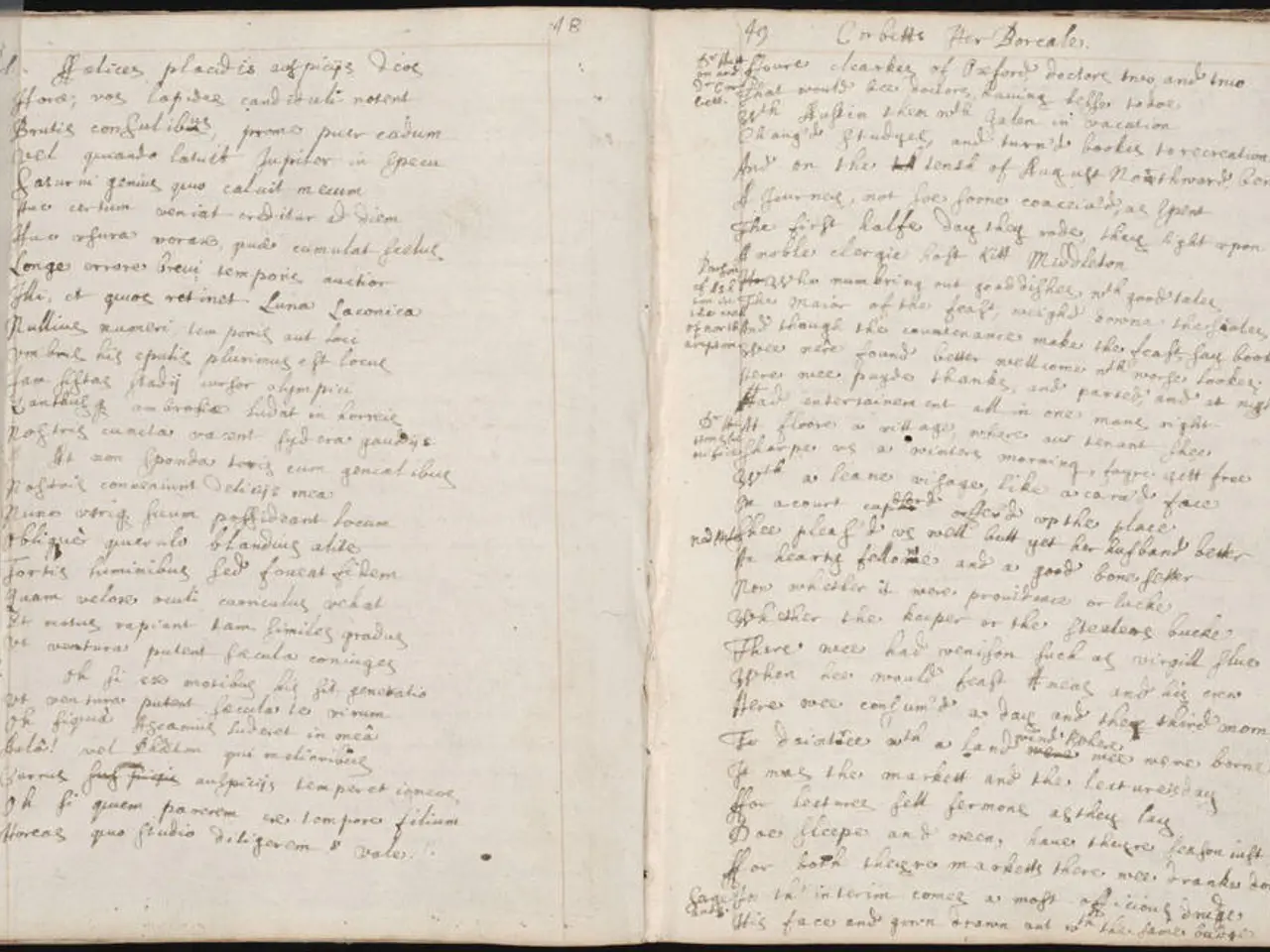AI Aids Papyrologists in the UK
==================================================================
In a remarkable discovery, a collection of 1,800 carbonized papyrus scrolls from the ancient city of Herculaneum, preserved by the eruption of Mount Vesuvius in 79 AD, have been found to be nothing short of a treasure trove for scholars of ancient Greek philosophy. This extensive collection, which represents the entire surviving library of Herculaneum, is primarily composed of Epicurean philosophical treatises.
The Epicurean texts among these scrolls, known as the Vesuvius rolls, have been remarkably well-preserved, considering their age of two thousand years. Among these, the works of the Epicurean philosopher Philodemus, notably a treatise called "On Vices," are prominently featured. This work delves into themes such as pleasure, ethics, and human conduct from the Epicurean perspective.
Moreover, fragments of texts by Epicurus himself, the originator of Epicurean philosophy, can also be found in these scrolls. The contents of the scrolls also engage with topics like the nature and role of pleasure, sometimes contrasting with other philosophies such as Stoicism.
Recent breakthroughs in the use of AI and advanced X-ray imaging have enabled researchers to read these fragile, carbonized scrolls without physically unrolling them. This groundbreaking technology has revealed intact philosophical discussions lost for two millennia. The decoded texts have shed light on ancient debates about ethics and how pleasure should be understood and pursued, representing a unique window into Roman-era Epicurean thought.
Michael McOsker, a papyrologist, is currently reading one of these ancient Greek texts on his laptop. The text he is reading has not been read for over 2,000 years. Despite the challenges posed by the ink mixtures used in the 1st century BCE, which can cause difficulties for AI in deciphering texts, the use of artificial intelligence has made it possible to make this text visible.
The papyrus scroll being read by Michael McOsker is one of the Vesuvius rolls from the library of Pompeii's neighboring city, Herculaneum. It is currently located in the Weston Library in Oxford. The 1,800 rolls discovered in the 18th century are currently being studied by scholars around the world.
This discovery is a testament to the resilience of ancient texts and the potential for modern technology to unlock their secrets. The insights gained from these texts may significantly impact our understanding of ancient Greek philosophy and its potential implications for the 25% of jobs worldwide that AI is predicted to impact.
Artificial-intelligence technology has enabled researchers to decipher previously inaccessible texts from the ancient city of Herculaneum, shedding light on Roman-era Epicurean thought. This advancement in technology has proven instrumental in unveiling intact philosophical discussions lost for two millennia.
The development and application of artificial-intelligence tools have not only revolutionized the reading of fragile, carbonized scrolls but also opened a unique window into ancient debates about ethics and the pursuit of pleasure, which may hold implications for jobs impacted by AI in the modern world.




